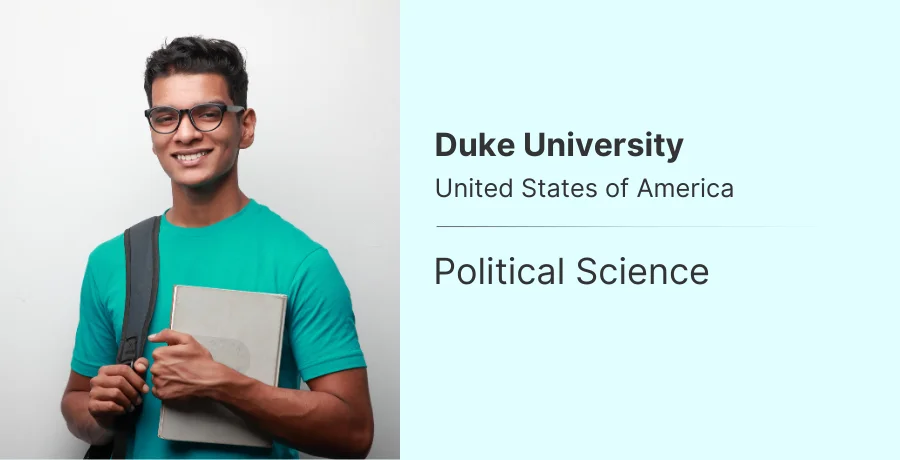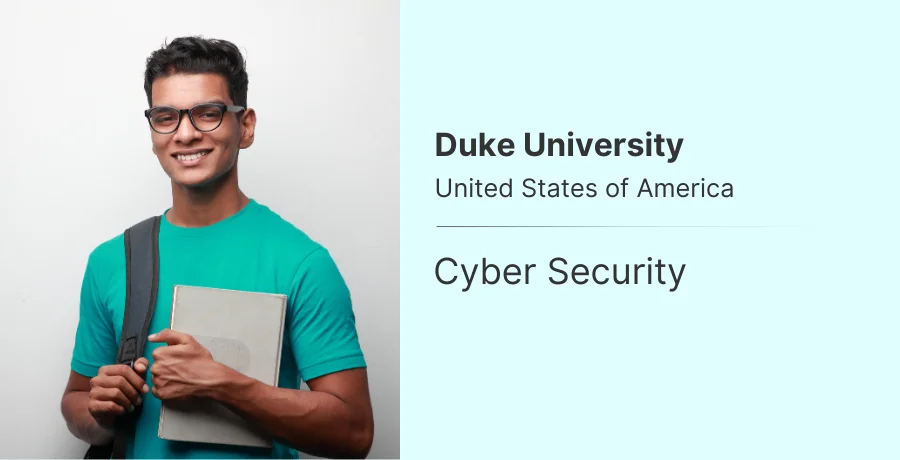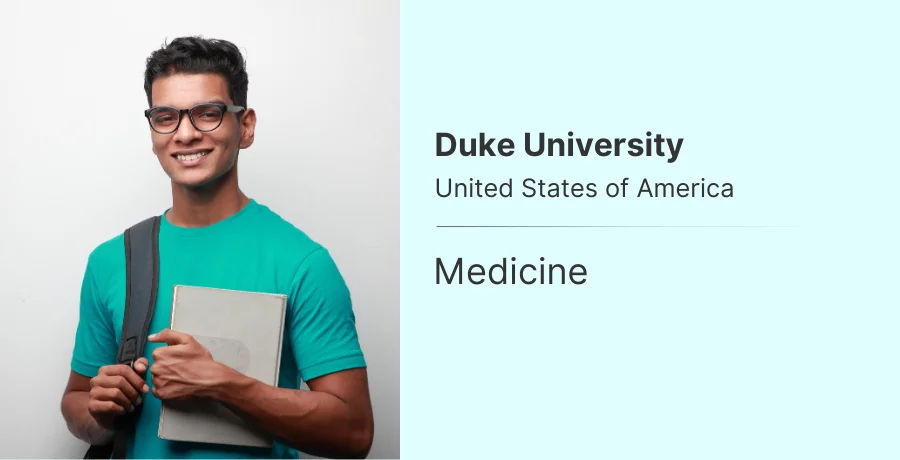Yeshiva University - Highlights
Established in 1886, Yeshiva University is a private research university in New York City known for its strong emphasis on Jewish education alongside secular studies. The university offers a diverse range of undergraduate, graduate, and doctoral programs across its various schools and colleges. It has consistently been ranked among the top universities for its academic excellence and vibrant campus life. Yeshiva University offers state-of-the-art infrastructure, including modern classrooms, advanced research facilities, and extensive library resources. The teaching faculty comprises experienced scholars and industry experts dedicated to student success. The university also benefits from substantial funding and endowments, enabling it to provide top-tier education and research opportunities.
- Year of establishment: 1886
- QS ranking: Among the top 400 universities globally
- Other rankings:
- National Universities: #76 (U.S. News & World Report)
- Best Value Schools: #50 (U.S. News & World Report)
- Top Private Universities in America: #84 (Niche)
- Best Colleges for Accounting and Finance: #45 (Niche)
- Best Colleges for Religious Studies: #10 (Niche)
- Infrastructure: Modern classrooms, advanced research facilities, extensive library resources.
- Teaching faculty: Experienced scholars and industry experts.
- Funding: Substantial endowments and grants.
- Accreditation: Middle States Commission on Higher Education (MSCHE).
Yeshiva University Rankings
National Ranking: Yeshiva University is ranked among the top 80-100 national universities in the United States, known for its strong programs in Jewish studies, law, and business.
World Ranking: Globally, Yeshiva University is ranked within the top 400-450 universities, recognized particularly for its contributions to Jewish education and its highly regarded Cardozo School of Law, according to QS World University Rankings and Times Higher Education.
To know more about other universities in the USA, click here.
Yeshiva University - Admissions
Admission to Yeshiva University is competitive, with a comprehensive review process considering academic performance, extracurricular involvement, and personal essays. The university welcomes a diverse student body, with a significant percentage of international students. The academic year is divided into two main semesters, with intakes in the Fall and Spring. The university's state-of-the-art infrastructure supports a conducive learning environment.
- Percentage of international students: Approximately 12%
- Semesters and Intakes: Fall and Spring
UG Admissions
- High school diploma or equivalent.
- Official transcripts from all attended schools.
- Standardized test scores (SAT/ACT).
- Letters of recommendation.
- Personal statement or essay.
PG Admissions
- Bachelor's degree from an accredited institution.
- Official transcripts from all attended universities.
- Standardized test scores (GRE/GMAT, if applicable).
- Letters of recommendation.
- Personal statement or essay.
Ph.D. Admissions
- Master's degree or equivalent.
- Official transcripts from all attended institutions.
- Standardized test scores (GRE, if applicable).
- Letters of recommendation.
- Research proposal or statement of purpose.
Eligibility Criteria
- UG Programs: High school diploma, SAT/ACT scores, letters of recommendation, personal statement.
- PG Programs: Bachelor's degree, GRE/GMAT scores (if applicable), letters of recommendation, personal statement.
Yeshiva University - Programs
Yeshiva University offers a wide range of undergraduate, graduate, and doctoral programs across various fields of study, providing students with a robust academic foundation and specialized knowledge.
UG Programs
- Business Administration: Comprehensive business education with a focus on leadership and management.
- Psychology: In-depth study of human behavior and mental processes.
- Biology: Detailed understanding of biological sciences and research methodologies.
- Political Science: Analysis of political systems, public policies, and international relations.
- Jewish Studies: Exploration of Jewish history, culture, and religious texts.
PG Programs
- MBA: Advanced business management and leadership skills.
- MS in Data Analytics: Expertise in data analysis, interpretation, and application.
- MA in Education: Pedagogical skills and educational leadership.
- MS in Clinical Psychology: Clinical skills and psychological assessment techniques.
- JD (Juris Doctor): Legal education and practice.
Yeshiva University Intakes
Yeshiva University, located in New York City, offers two primary intakes: fall and spring. The fall intake begins in late August and is the main entry point for most undergraduate and graduate programs. The spring intake starts in January and is available for select programs. Some summer courses are also offered, though these are typically more limited. Applying early is recommended, especially for those seeking financial aid and housing.
Accommodation
On-campus Accommodation
Yeshiva University provides comfortable and secure on-campus housing options with modern amenities, fostering a vibrant and inclusive student community.
Off-campus Accommodation
Students can also opt for off-campus housing, with numerous options available in the surrounding neighborhoods, offering flexibility and convenience.
Housing Options
Single and shared rooms, apartments, and dormitories.
Yeshiva University Acceptance Rate
Yeshiva University has a moderately selective acceptance rate, typically around 60-65%. The university is well-regarded for its strong Jewish studies program and vibrant community life, attracting a diverse applicant pool. Admissions decisions are based on a holistic review, including academic performance, standardized test scores, extracurricular activities, and personal essays. International students must demonstrate English language proficiency, usually through TOEFL, IELTS, or Duolingo English Test scores.
Cost of Living in New York City
Yeshiva University is located in New York City, where the cost of living is significantly higher than the national average. Students should budget between $2,500 and $4,000 per month for living expenses, which include accommodation, food, transportation, and personal costs. Living in Manhattan offers unique cultural and professional opportunities, but it also demands careful financial planning to manage the higher expenses.
Cost of Tuition Fees
Tuition fees at Yeshiva University vary depending on the program and level of study. Below is an approximate breakdown of the costs:
| Program | Approximate Fees (per year) |
|---|---|
| Undergraduate | $45,000 |
| Postgraduate | $30,000 |
Cost of Living
The cost of living in New York City can be high, but students can manage expenses with careful planning. Here are approximate figures for various living expenses:
| Expense | Approximate Cost (per month) |
|---|---|
| Rent | $1,500 |
| Travel | $100 |
| Utilities | $150 |
| Food & Drink | $300 |
| Entertainment | $200 |
Scholarships
Yeshiva University offers various scholarships to support students financially. Below is a list of the top 10 scholarships available, along with the maximum amount offered:
| Scholarship Name | Maximum Amount Offered |
|---|---|
| Presidential Scholarship | $25,000 |
| Dean's Scholarship | $20,000 |
| Merit-based Scholarship | $15,000 |
| Need-based Scholarship | $10,000 |
| International Student Scholarship | $8,000 |
| Alumni Scholarship | $5,000 |
| Community Service Scholarship | $3,000 |
| Research Scholarship | $2,000 |
| Sports Scholarship | $1,500 |
| Creative Arts Scholarship | $1,000 |
To know about the USA study visa requirements, click here.
Placements
Yeshiva University has a strong track record of placing students in reputable companies and organizations. The university boasts a placement rate of over 85%, with graduates securing roles in various industries.
| Job Role | Approximate Salary |
|---|---|
| Software Engineer | $90,000 |
| Financial Analyst | $80,000 |
| Marketing Manager | $75,000 |
| Data Scientist | $95,000 |
| Clinical Psychologist | $70,000 |
| Legal Advisor | $100,000 |
Yeshiva University FAQs
Q: What are the language requirements for international students at Yeshiva University?
A: International students must demonstrate English proficiency, typically through TOEFL, IELTS, or Duolingo English Test scores. Certain programs may require higher scores, and additional English language support is available through the university.
Q: Can international students work while studying at Yeshiva University?
A: Yes, international students on F-1 visas can work on campus for up to 20 hours per week during the academic year and full-time during breaks. Off-campus employment is allowed under specific conditions, such as through Optional Practical Training (OPT) or Curricular Practical Training (CPT).
Q: What scholarships are available for international students at Yeshiva University?
A: Yeshiva University offers several merit-based scholarships for international students, including the Dean’s Scholarship and the Distinguished Scholar Awards. While need-based financial aid is limited for international students, they are encouraged to explore external scholarships.
Q: How do I apply for student housing at Yeshiva University?
A: Yeshiva University offers on-campus housing, primarily in residence halls, with a focus on creating a strong community atmosphere. Housing assignments are made on a first-come, first-served basis, and early application is recommended. Off-campus housing options are also available in nearby neighborhoods, with support from the university’s housing office.
Q: What is the average class size at Yeshiva University?
A: The average class size at Yeshiva University is around 15-20 students. This small class size fosters a close-knit academic environment, allowing for personalized attention and active participation. Upper-level courses and seminars typically have even fewer students, enhancing the learning experience further.
Other Universities in USA, you might be interested in;
- University of North Carolina System
- University of Florida (Gainesville)
- Indiana University System
- Florida State University
- Vanderbilt University
- Rice University
- Washington University
- Dartmouth College
- University of Wisconsin System
- Ohio State University
- University of Washington
- Pennsylvania State University
- University of Minnesota System
- University of Arizona
- Arizona State University
- University of Colorado System
- University of Maryland System
- University of Alabama System
- University of Illinois System
- University of Georgia
- Boston University
- University of Rochester
- Purdue University
- Case Western Reserve University
- University of Missouri, Columbia
- Massachusetts Institute of Technology (MIT) Stanford University
- Harvard University
- California Institute of Technology (Caltech)
- University of Chicago
- University of Pennsylvania
- Princeton University
- Yale University
- Cornell University
- Columbia University
- Johns Hopkins University
- University of Michigan-Ann Arbor
- University of California, Berkeley (UCB)
- Northwestern University
- New York University
- University of California, Los Angeles (UCLA)
- Duke University
- Carnegie Mellon University
- University of California, San Diego (UCSD)
- Brown University
- University of LincolnVanderbilt University
- University of Wisconsin-Madison
- Tulane University
- Texas A&M University
- University of Miami
- Drexel University
- Emory University
- University of Houston
- University of Pittsburgh
- University of Oklahoma
- Tufts University
- Stevens Institute of Technology
- Boston College
- University of New Mexico
- New Jersey Institute of Technology (NJIT)
- Georgetown University
- Rutgers, The State University of New Jersey-New Brunswick
- Virginia Polytechnic Institute (Virginia Tech)
- University of Notre Dame
- Northeastern University
- University of Hawai'i at Mānoa
- Stony Brook University
- Indiana University Bloomington
- George Washington University












